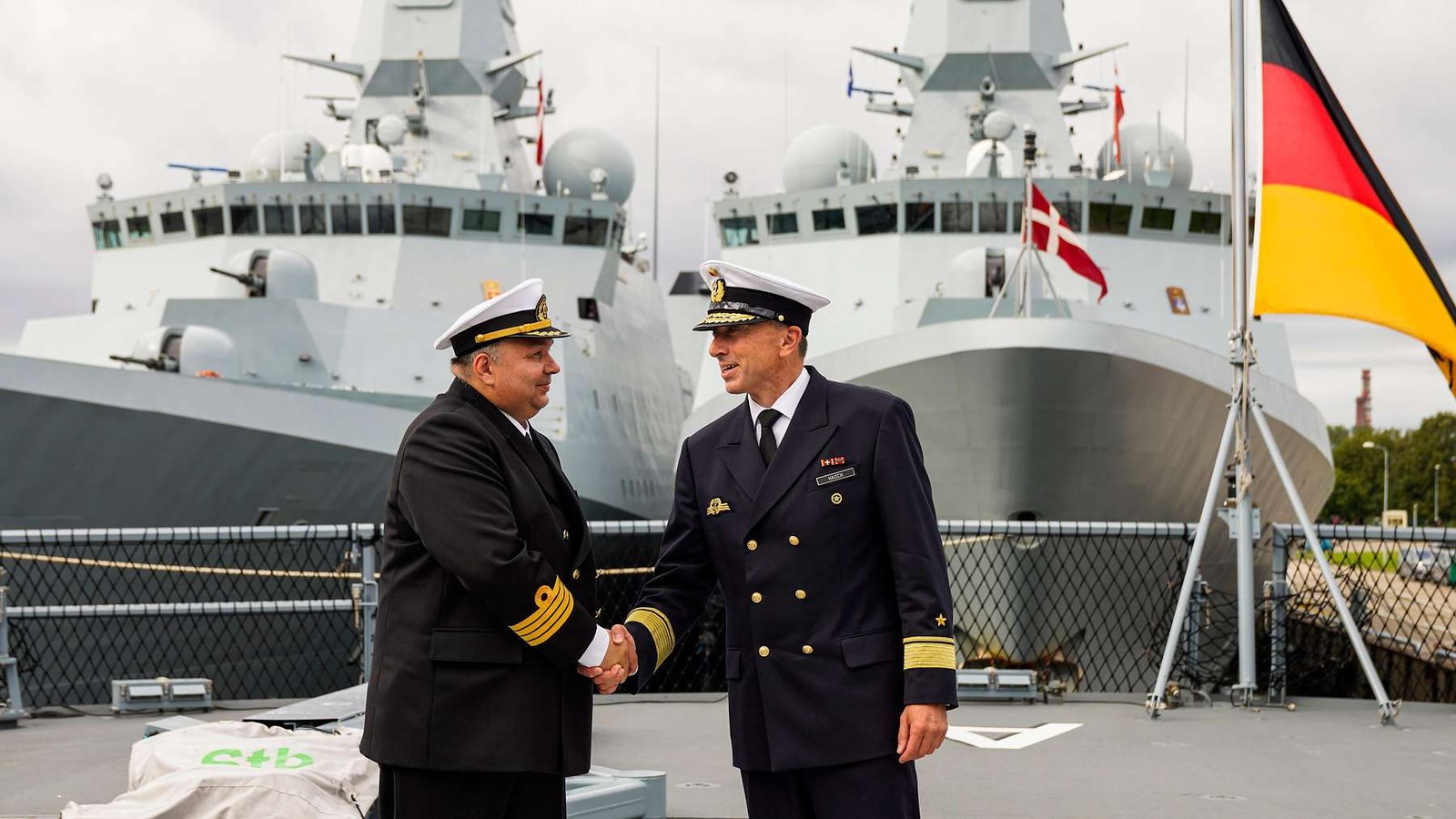By von Marcus Mohr
Bundeswehr PAO
With the departure of the ships of the manoeuvre group from Riga on 11 September, the sea phase of Northern Coasts 2023 has begun. This is the actual beginning of the large-scale maritime exercise in the central Baltic Sea, in which around 30 naval ships from 14 nations are involved.
For the more than 3,000 marines, this marks the beginning of an intensive two weeks at sea. In the first week until 18 September, the so-called Combat Enhancement and Force Integration Training (CETCombat Enhancement Training-FITForce Integration Training) instead. This phase runs along a timetable with many smaller individual exercises, the main aim of which is to ensure that the crews of the ships and boats can work together smoothly. These individual exercises include, for example, driving in a formation, towing at sea or the joint defense against attacking aircraft.
“One of the goals of Northern Coasts 2023 is of paramount importance: Train as you fight – practice how you fight,” says Flotilla Admiral Stephan Haisch. “In other words, the exercise is as close to reality as possible.”
Haisch is the commander of the entire maneuver group, the task Force 421, and at the same time the Exercise Director, i.e. the chief planner and arbitrator of the large-scale exercise. He and his staff, primarily members of the Command Staff DEU MARFORGerman Maritime Forces, direct the naval manoeuvre off the coasts of Latvia and Estonia from Rostock on the German Baltic Sea coast. Than Commander Task Force Five individual task groups are subordinate to him: two surface combat units with mainly frigates, a large mine countermeasures group, a group of long-range reconnaissance aircraft and an amphibious battle group with a large landing ship and a battalion of marines.
The admiral explains the course of Northern Coasts 2023: “In the second week, we are going into a free-play phase with the task groups. Here we have carefully prepared an exercise script based on existing plans for the collective defense of the Baltic states. Within this framework, the units are induced to take action and react by our exercise management in Rostock.”
For him and his management team in the so-called Exercise Control a special challenge. “We don’t know how the units will react to the script,” says Haisch, expressing confidence. “Hopefully they’ll react the way we planned, because we generally have to have our script in mind. But it’s a free game and we should start a lot of action.”
The importance of the realism of Northern Coasts 2023 is also emphasized by the Commander of the Latvian Navy, Captain at Sea Maris Polencs: “The Northern Coasts 2023 collective defence scenario is essential for optimizing interoperability between the naval and air forces involved.”
Polencs is also positive: “The scope, complexity and intensity of the exercise are impressive. We have to be ambitious if we want to achieve our goals.”
As a representative of the host country Latvia, he is particularly aware of the security context of the exercise, as he is in all Baltic countries. “The ongoing war in Ukraine has had a lasting impact on all Baltic states,” Polencs explains. “He clearly showed the need to intensify cooperation between the Baltic states and the regional naval forces.”
There is a well-known Roman proverb, Polencs explains. If you want peace, you have to prepare for war. “This means that you shouldn’t wait until you start preparing for war when it’s imminent,” says the Latvian. “Rather, it is important to be prepared, even if times are peaceful.”
Also for the German Exercise Director Stephan Haisch, the entire Baltic Sea is in a peaceful normal state. None of the participants in the exercise expects confrontational encounters, for example, with Russian naval vessels during the course of Northern Coasts in 2023 or beyond. In addition, according to media reports, Russia has significantly restricted its exercise activities in the region this year.
In view of this, Admiral Haisch once again emphasizes the relevance of fundamentals for all those involved in Northern Coasts 2023. “Knowledge of the area, knowledge of allies and partners, knowledge of potential adversaries and their capabilities are crucial, especially in this region of the Baltic Sea,” he elaborates. “Intensive cooperation, permanent coordination and a clear management structure are the key factors for the successful planning and management of maritime operations.”

